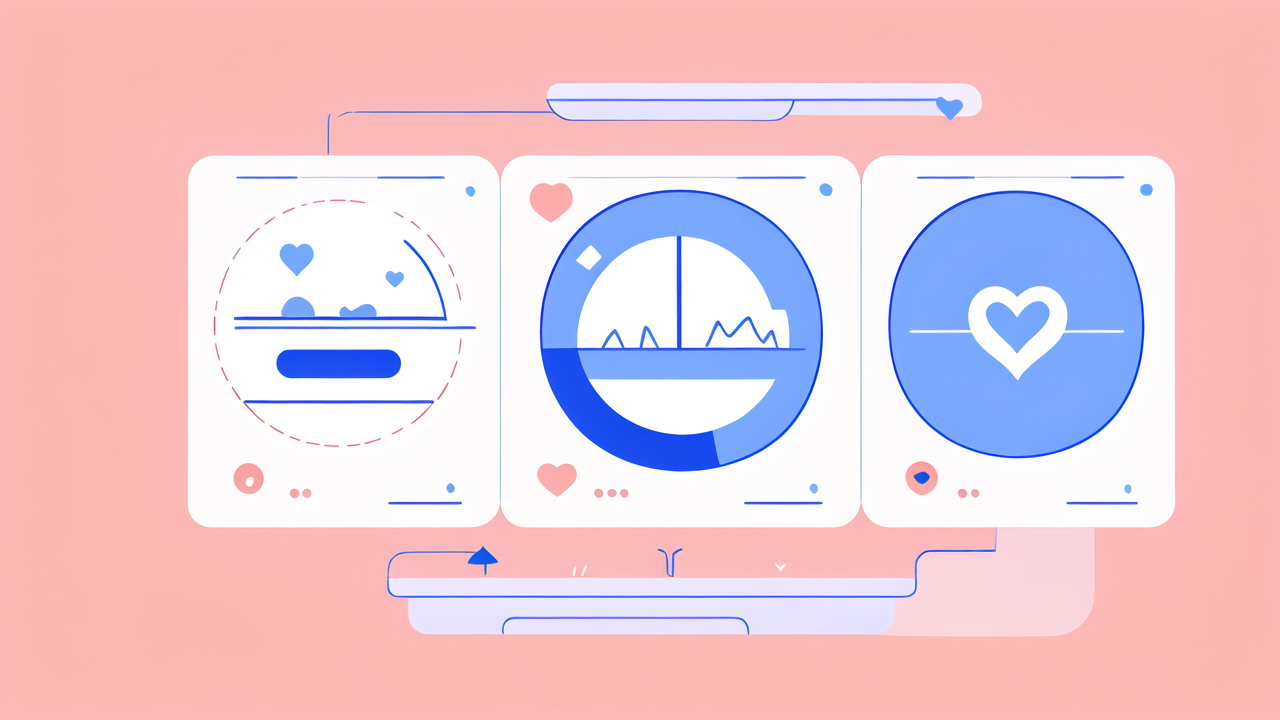Introduction to Health Monitoring in the Digital Age
The Evolution of Personal Health Tracking
Health tracking has come a long way. It started with simple tools like scales and thermometers. Now, we have smart devices that track our every move. These gadgets can measure our steps, heart rate, and sleep patterns. They've changed how we view our health.

In the past, we only knew about our health when we felt sick. Now, we can track it daily. This shift has made us more aware of our bodies. It's like having a personal health assistant in our pocket. The journey from basic tools to smart devices has been amazing.
Key Motivations for Adopting Health Monitors
People use health monitors for many reasons. Some want to lose weight or get fit. Others need to manage chronic conditions. Many just want to understand their bodies better.
Health monitors offer real-time data. This info helps users make better choices. They can see how diet and exercise affect them. For some, it's about preventing health issues. Early warning signs can be caught sooner.
Motivation also comes from the fun of tracking progress. It's like a game to beat your personal best. Social features let users share and compete with friends. This adds a fun twist to staying healthy.
Analyzing Health Monitor Benefits
Enhancing Daily Habits and Wellness
Health monitors can boost our daily routines. They remind us to move more and sit less. Many people find they drink more water when tracked. Sleep trackers help users develop better sleep habits.

These devices make us more aware of our choices. We might think twice before that late-night snack. Or we might take the stairs instead of the elevator. Small changes add up over time.
Some monitors offer personalized tips. These suggestions are based on your data. They can help you make smarter health choices. It's like having a health coach with you all the time.
Early Detection of Health Issues
One of the biggest perks of health monitors is early warning. They can spot changes in your body before you feel them. This early detection can be life-saving.
For example, heart rate monitors might catch an irregular heartbeat. Blood pressure trackers can show if you're at risk for hypertension. Even sleep trackers can hint at sleep apnea.
Catching these issues early means faster treatment. It can prevent small problems from becoming big ones. This proactive approach to health is changing lives.
Improving Health Outcomes and Compliance
Health monitors help people stick to their health plans. They provide clear goals and track progress. This makes it easier to follow doctor's orders.
For those with chronic conditions, monitors are game-changers. Diabetics can track blood sugar levels easily. Heart patients can monitor their blood pressure at home. This data helps doctors adjust treatments faster.
The visual feedback from these devices is motivating. Seeing progress encourages users to keep going. It turns health management into a positive experience.
Integrating Health Monitors into the Healthcare System
Challenges and Opportunities in Health Monitor Adoption
While health monitors offer great benefits, there are hurdles. Privacy is a big concern. Users worry about who can see their data. There's also the question of data accuracy. Not all devices are equally reliable.

Another challenge is the digital divide. Not everyone has access to these tools. This could widen health gaps between different groups. There's also a learning curve. Some people find the tech confusing.
But these challenges also present opportunities. They push for better privacy laws. They drive innovation in user-friendly design. They highlight the need for digital health education.
Impact on Healthcare Costs and Services
Health monitors could reshape healthcare economics. They may reduce hospital visits. Patients can manage more at home. This could lower healthcare costs overall.
These devices also change how doctors work. They get more data between visits. This helps them make better decisions. It might mean fewer tests and more precise treatments.
Insurers are taking notice too. Some offer discounts for using health monitors. This could make healthcare more affordable for many. It's a win-win for patients and providers.
Future Trends in Personal Health Management
The future of health monitoring looks bright. We're moving towards more integrated systems. Your watch, phone, and home devices might all work together. They could give a complete picture of your health.
AI and machine learning will play bigger roles. They'll make sense of all the data we collect. This could lead to truly personalized health advice. Imagine a system that knows exactly what you need to stay healthy.
Wearable tech is getting smaller and smarter. Soon, we might have sensors in our clothes or even under our skin. The line between tech and health will blur even more.
In conclusion, health monitors are changing how we care for ourselves. They make us more aware and proactive about our health. As the technology improves, so will our ability to live healthier lives. The future of personal health is in our hands - quite literally.




Leave a comment
This site is protected by hCaptcha and the hCaptcha Privacy Policy and Terms of Service apply.